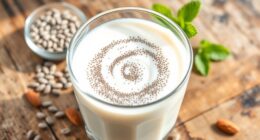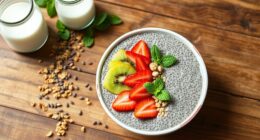Did you know that cultivating superfood seeds in your own home can provide you with a constant supply of nutrient-rich ingredients?
In this step-by-step guide, we’ll show you how to grow your own superfood seeds, starting with choosing the right seeds and preparing the planting containers.
We’ll also share tips on sowing and providing optimal growing conditions for maximum yield.
Get ready to embark on a journey of self-sufficiency and enjoy the healthy benefits of homegrown superfoods.
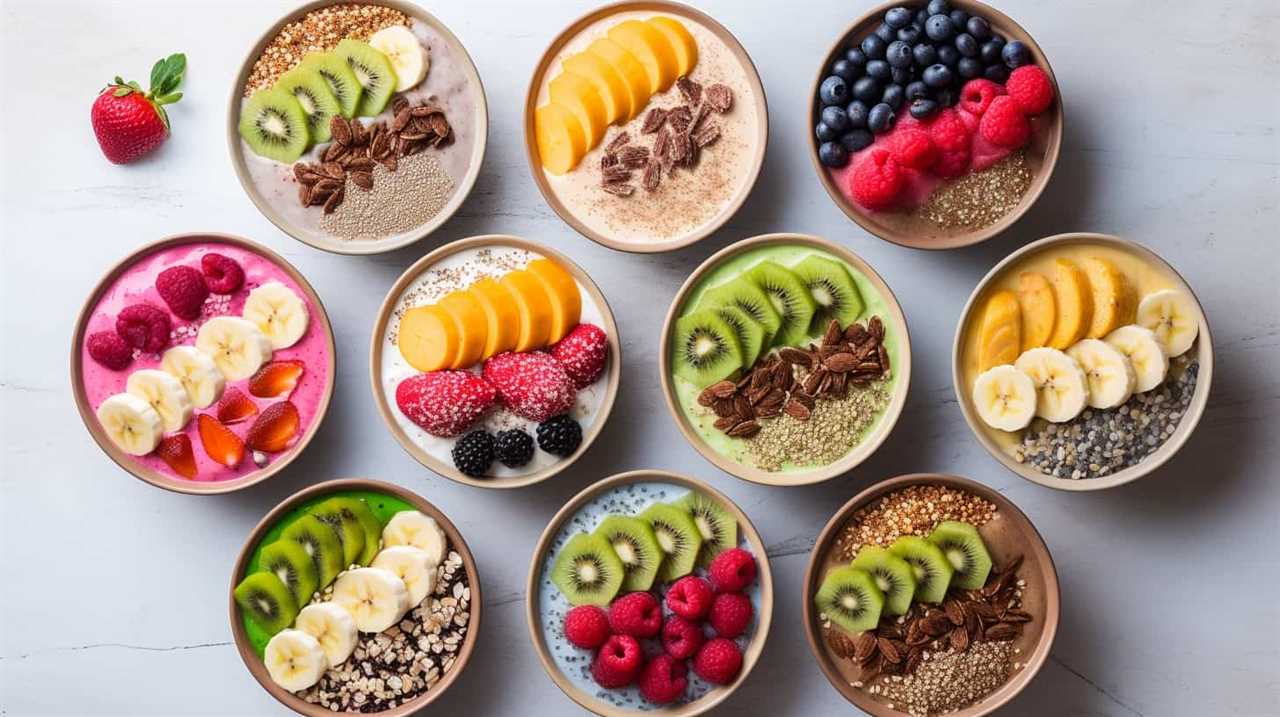
Let’s dive in!
Key Takeaways
- Prioritize quality and reliability when sourcing seeds from reputable seed companies specializing in organic and non-GMO seeds.
- Choose containers of appropriate size with adequate drainage holes and fill them with well-draining potting mix rich in organic matter.
- Sow chia seeds by sprinkling them evenly on well-draining soil, gently pressing them in, and providing moisture without waterlogging.
- Provide optimal growing conditions such as maximum sunlight exposure, sustainable watering, proper soil pH and amendment, and following recommended spacing guidelines.
Choosing the Right Seeds
To begin our journey of cultivating superfood seeds at home, we must first focus on selecting the right seeds. Seed selection is a crucial step in ensuring a successful harvest of nutrient-rich superfoods.
When it comes to seed sourcing, it’s important to prioritize quality and reliability. Look for reputable seed companies that specialize in organic and non-GMO seeds. These companies often provide detailed information about the seeds they offer, including their origin, growing conditions, and nutritional profiles.
Consider the specific needs of the superfood seeds you wish to cultivate, such as soil type, climate, and sunlight requirements. Additionally, pay attention to the germination rates and shelf life of the seeds, as these factors can greatly impact your gardening success.
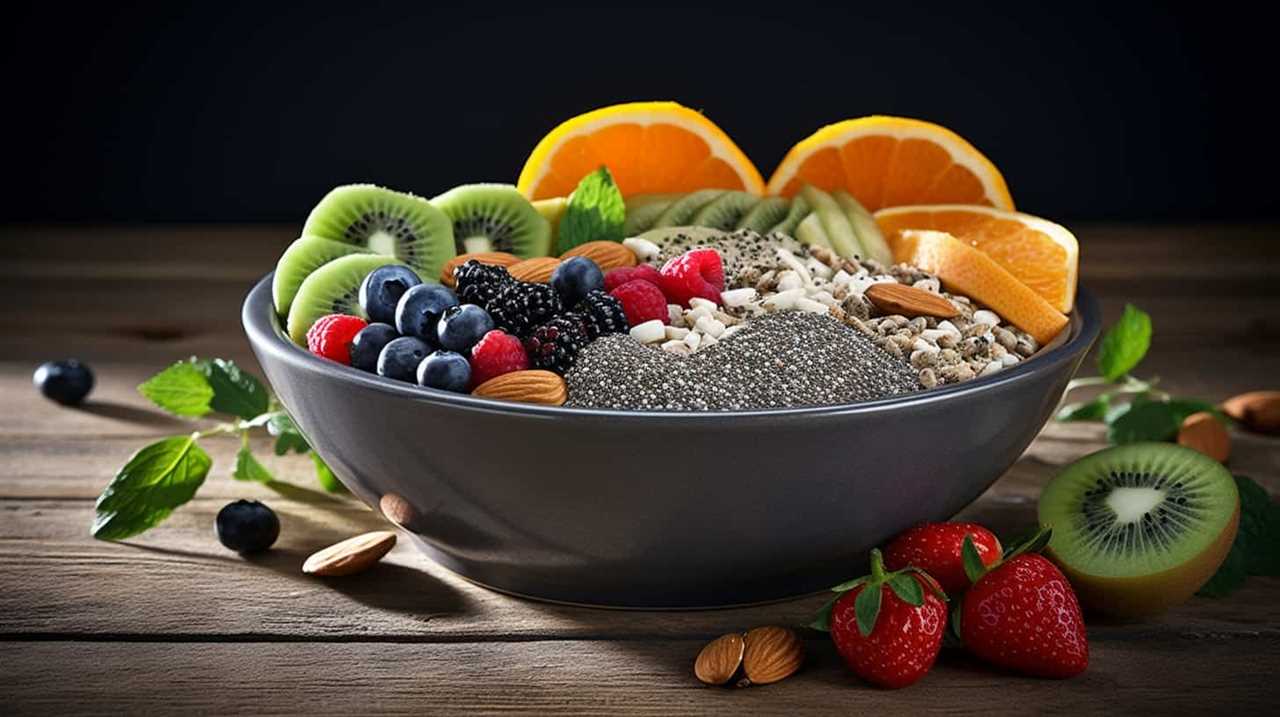
Preparing the Planting Containers
We frequently prepare our planting containers by gathering the necessary materials and ensuring they’re clean and ready for planting. Proper container selection is crucial for the successful growth of superfood seeds. Here are four key steps to prepare your planting containers:
-
Choose the right size: Select containers that are appropriate for the specific superfood seedlings you’re planning to grow. Smaller containers are suitable for seeds with delicate root systems, while larger containers are ideal for plants that require more space to grow.
-
Ensure adequate drainage: Opt for containers with drainage holes at the bottom to prevent waterlogging. This will help promote healthy root growth and prevent the risk of root rot.
-
Use quality potting mix: Fill the containers with a well-draining potting mix that’s rich in organic matter. This will provide the necessary nutrients for the seedlings to thrive.
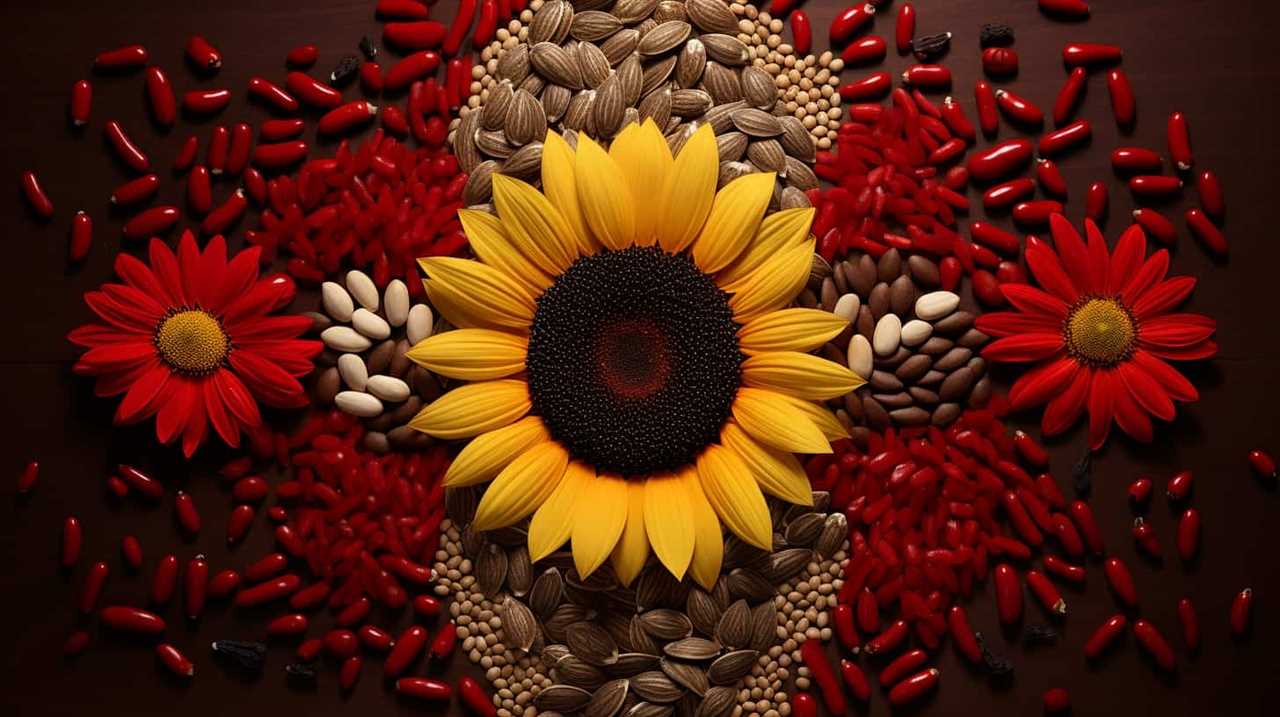
-
Sterilize the containers: Before planting, make sure to clean the containers thoroughly to remove any potential pathogens or pests. Sterilizing the containers can be done by soaking them in a mixture of water and bleach or using a mild soap solution.
Preparing the planting containers is an important step in ensuring the success of your superfood seedlings. Now that our containers are ready, let’s move on to the next section and learn about sowing chia seeds.
Sowing Chia Seeds
Now let’s begin sowing the chia seeds, ensuring proper placement and care for optimal growth.
To germinate chia seeds, start by filling a planting container with well-draining soil, leaving about an inch of space at the top.
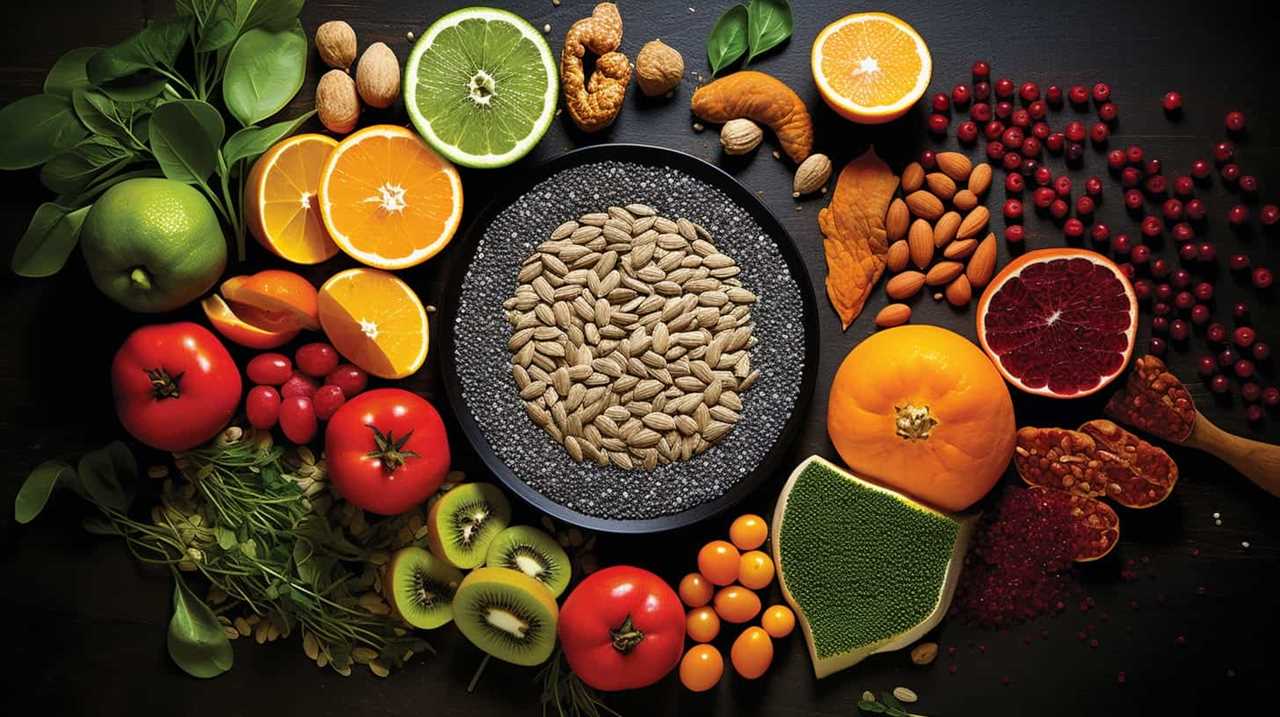
Sprinkle the chia seeds evenly across the soil surface, aiming for a dense but not overcrowded distribution. Gently press the seeds into the soil, making sure they’re in contact with the moisture beneath.
Mist the soil with water until it’s evenly moist but not waterlogged. Place the container in a warm and well-lit area, ideally with temperatures between 70-80°F.
Keep the soil consistently moist, but avoid overwatering, as this can lead to fungal growth.
Monitor the seeds closely for signs of germination, which typically occurs within 7-14 days.
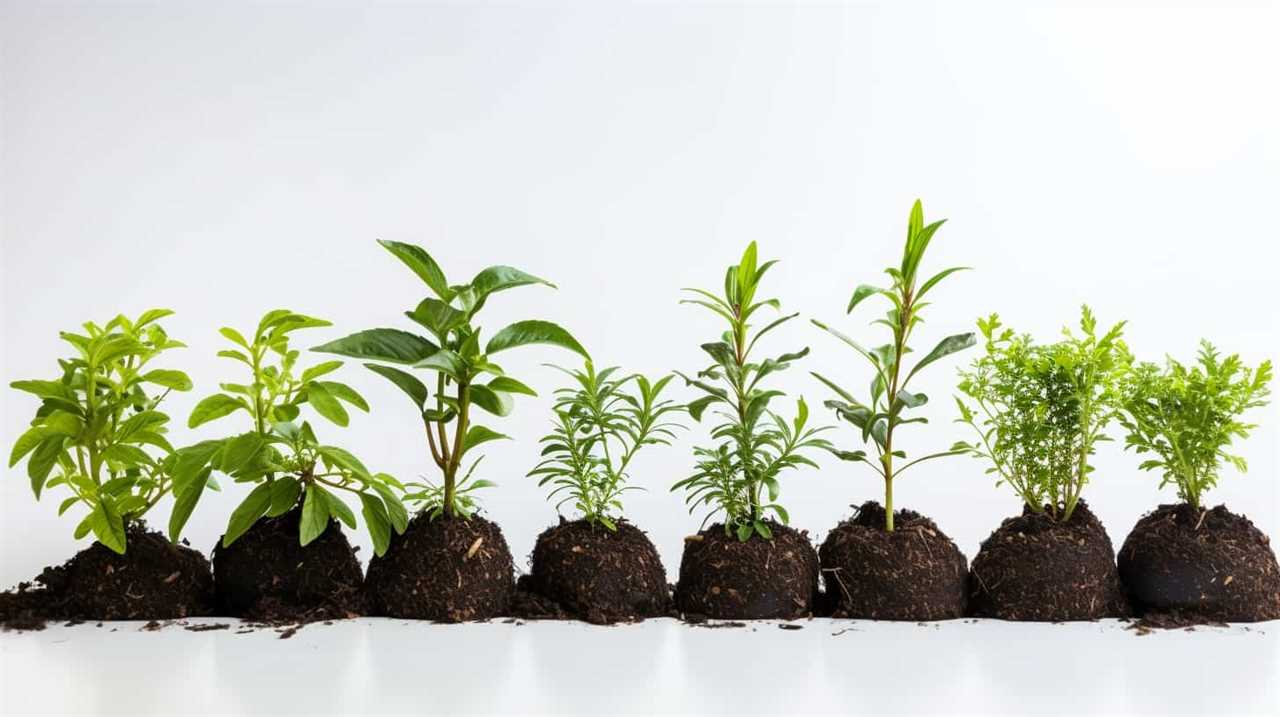
If you encounter any issues like mold or poor germination rates, consider adjusting the watering schedule or providing better air circulation. Troubleshooting common issues promptly will help ensure successful chia seed germination.
Providing Optimal Growing Conditions
For the best results, ensure that superfood seeds are cultivated in an environment with optimal growing conditions. To create an ideal environment for your superfood seeds, follow these steps:
-
Maximizing sunlight exposure: Superfood seeds, like chia, thrive in full sun. Choose a location that receives at least 6-8 hours of direct sunlight per day. If you’re growing indoors, use grow lights to provide sufficient light.
-
Creating a sustainable watering system: Superfood seeds require consistent moisture, but overwatering can lead to root rot. Install a drip irrigation system or use a watering can with a narrow spout to deliver water directly to the soil. Mulching around the plants can help retain moisture.
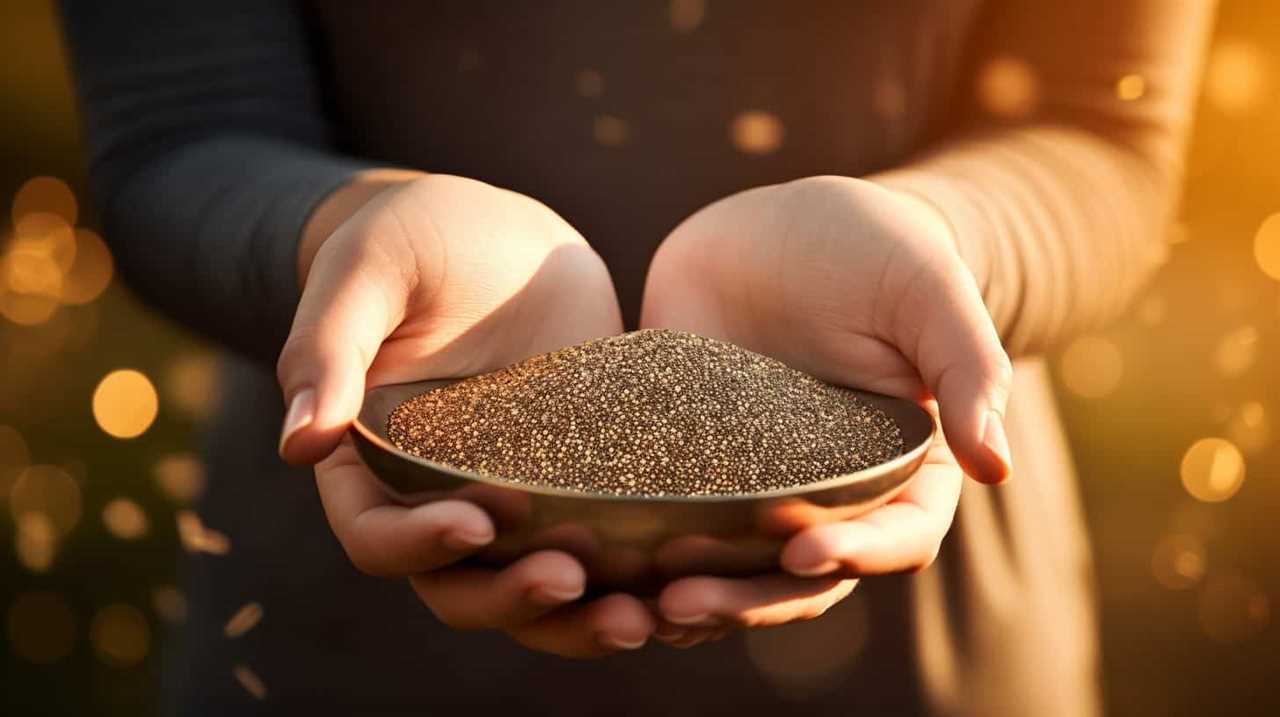
-
Proper soil preparation: Superfood seeds prefer well-draining soil with a pH level between 6 and 7. Amend the soil with organic matter, such as compost, to improve its structure and fertility.
-
Adequate spacing: Give your superfood seeds enough space to grow and spread their roots. Follow the recommended spacing guidelines provided on the seed packet or plant label.
By providing optimal growing conditions, you’ll set your superfood seeds up for success.
Now, let’s move on to the next step: harvesting and storing chia seeds.
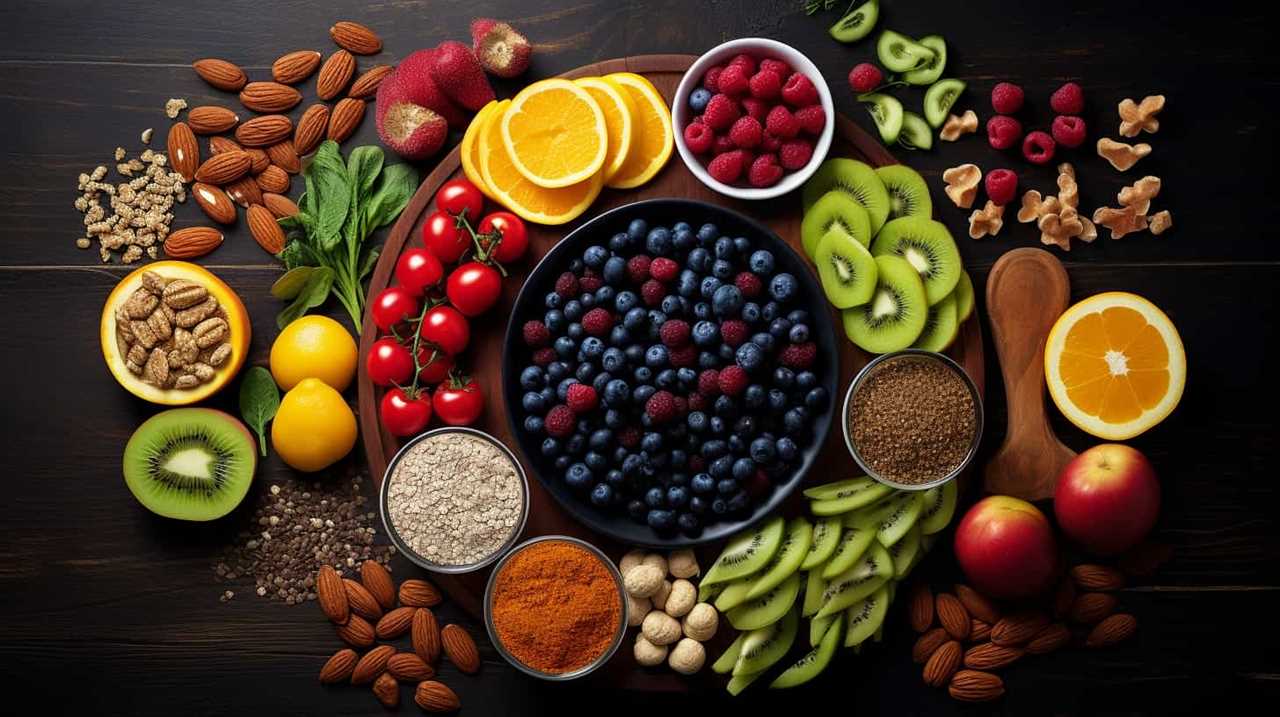
Harvesting and Storing Chia Seeds
To ensure the highest quality chia seeds, it is important to properly harvest and store them. Harvesting chia seeds is a straightforward process that can be done at home. When the chia plants have fully matured, the seed heads will turn brown and dry out. Carefully cut the seed heads and place them in a paper bag to collect any loose seeds. Next, gently rub the seed heads to release the seeds. Once the seeds are collected, it is crucial to store them properly to maintain their freshness and nutritional value. Chia seeds should be stored in an airtight container in a cool, dry place, away from direct sunlight. They can be stored for up to two years. By following these steps, you can enjoy the health benefits of chia seeds in various chia seed recipes for years to come.
| Harvesting Chia Seeds | Storing Chia Seeds |
|---|---|
| Wait for seed heads to turn brown and dry out | Store in an airtight container |
| Cut seed heads and collect loose seeds in a paper bag | Keep in a cool, dry place |
| Gently rub seed heads to release the seeds | Avoid direct sunlight |
Frequently Asked Questions
How Long Do Chia Seeds Take to Germinate?
Chia seeds typically take 7-10 days to germinate. During this time, they require regular watering, ensuring the soil is evenly moist. Consistent watering frequency is crucial for successful germination and healthy seedlings.
Can I Plant Chia Seeds Directly in the Ground?
Yes, we can plant chia seeds directly in the ground. It has several benefits, such as providing a natural and nutrient-rich environment for growth. Planting outdoors allows the seeds to establish stronger root systems and adapt to their surroundings more effectively.
How Often Should I Water Chia Seeds During the Germination Process?
We water chia seeds during the germination process every two to three days to maintain the optimal moisture level for sprouting. This ensures that the seeds have enough hydration to germinate successfully.
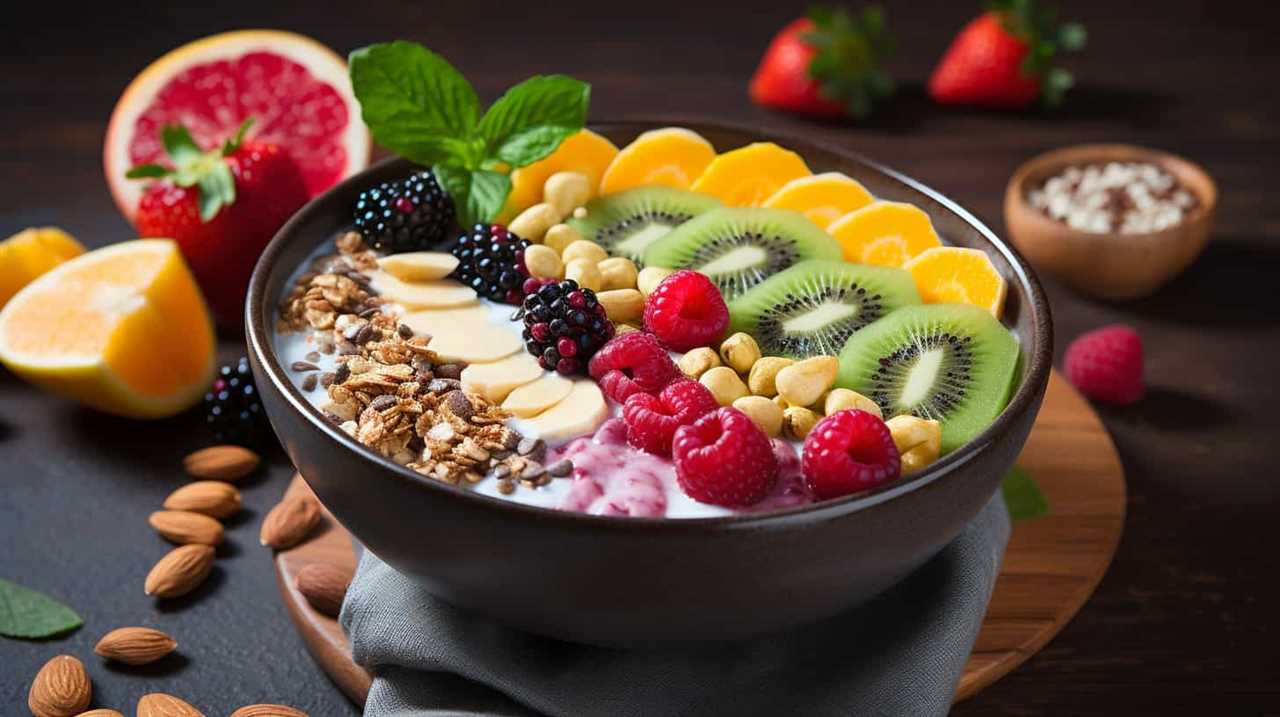
What Is the Best Time of the Year to Plant Chia Seeds?
The best time to plant chia seeds indoors depends on your climate. In general, it’s recommended to plant them during the spring or early summer. Harvesting chia seeds usually takes place in late summer or early fall.
Can I Reuse the Planting Containers for Future Seed Cultivation?
Yes, we can reuse containers for future seed cultivation. However, it is important to ensure they are properly cleaned and disinfected before reuse. Alternatively, there are container alternatives available that are specifically designed for seed cultivation.
Conclusion
In conclusion, cultivating superfood seeds at home is an incredibly rewarding and beneficial endeavor. By carefully choosing the right seeds, preparing the planting containers, and providing optimal growing conditions, you can enjoy a bountiful harvest of nutritious chia seeds.
Remember to harvest and store them properly to preserve their freshness and maximize their health benefits.
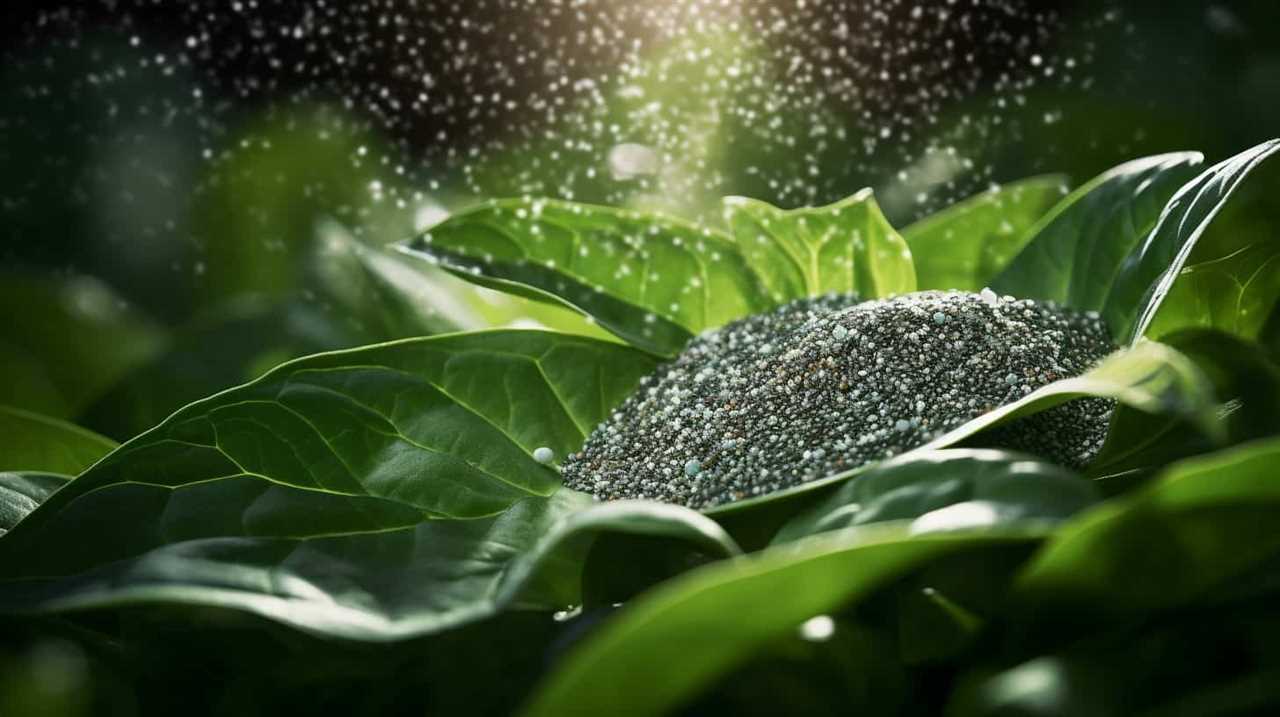
So why wait? Embark on this superfood journey and witness the amazing transformation of your home garden into a thriving source of vitality and nourishment.







